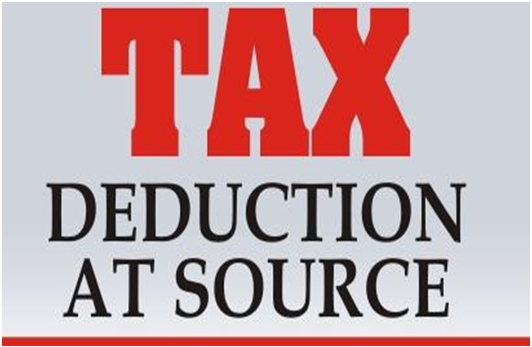Tax Deducted at Source (TDS) is deducted by the person who pays your income. Responsibility of tax collection is shared between the deductor and the tax administration. This helps bring in a regular cash flow to the Government.

Essentially, it’s a means of preventing tax evasion.
- Types Of TDS: TDS is deducted on the salary paid to you, your interest income on bank deposits and bonds, lottery winnings, horse races, and others.
- TDS Certificates: In case of salaries, the TDS certificate is issued in Form 16 by the deductor. In case of earnings from other sources like house rent and deposits, the TDS certificate is issued in Form 16A. The certificate contains tax computation details, the tax deducted, and details on the amount paid.
- TDS Rates: In case of salaries, the tax deducted is payable on the basis of your average rate of income tax for the financial year.
The average rate of income tax is calculated on the Income Tax Slab Rate youbelong to. Your average rate of tax will be different for each financial year. It varies based on your income and the Income Tax Slab Rates in force for that assessment year.
In case of interest earned on deposits and bonds, you won’t have to pay TDS as long as your interest income falls below Rs. 10,000. If your interest exceeds the exemption limit, you’ll have to pay TDS at a rate of 10%. If you don’t have PAN details available, you will be charged at a rate of 20%.
In case of winnings from lotteries and other competitions, you will be charged TDS at a rate of 30%. However, you won’t be charged if the amount is less than Rs. 5,000 for lotteries and puzzles, and Rs. 2,500 for horse races.
- TDS Refund: If you fall below the exemption limit but find that TDS has been deducted already, you can apply for a refund. You can make the claim while filing your tax returns. You’ll just need to quote your bank name and IFSC code. However, an easier solution would be to fill up Form 13 for salaries. For deposits, fill up Form 15.
- Senior Citizen Benefit: If you’re above 60 years of age, you are exempt from TDS on fixed deposit accounts. Just fill in and submit Form 15H to ensure that TDS is not deducted on your FD interest. If it’s been deducted already, you can apply for a refund.
- Check Form 26AS: Form 26AS contains details of tax deducted. If there is any discrepancy, seek clarification from the deductor. If TDS is already deducted and it doesn’t reflect in the form, you have lost “money” in a sense.
- Penalty For Delay: A penalty of Rs. 200 per day is charged if you fail to pay before the due date, i.e. 31st July, January, October or May depending on the quarter of every year.
A penalty between Rs. 1,000 to Rs. 1,00,000 will be levied if you don’t file your returns within 1 year from the due date, or if incorrect information has been furnished.
Filing your TDS tax returns before the due date is your duty as a responsible citizen. It not only keeps you safe, but also contributes to funding the government so that they can help you with effective administration.
References:
http://profit.ndtv.com/news/your-money/article-five-things-you-should-know-about-tds-384708
http://www.simplifiedlaws.com/8-things-to-know-about-tds-provisions/
http://economictimes.indiatimes.com/wealth/tax/missed-the-tax-return-filing-deadline-heres-what-to-do/articleshow/53597715.cms
https://www.bankbazaar.com/tax/how-claim-tds-refund.html
https://www.bankbazaar.com/tax/how-calculate-tds-from-salary.html

























Leave a Reply